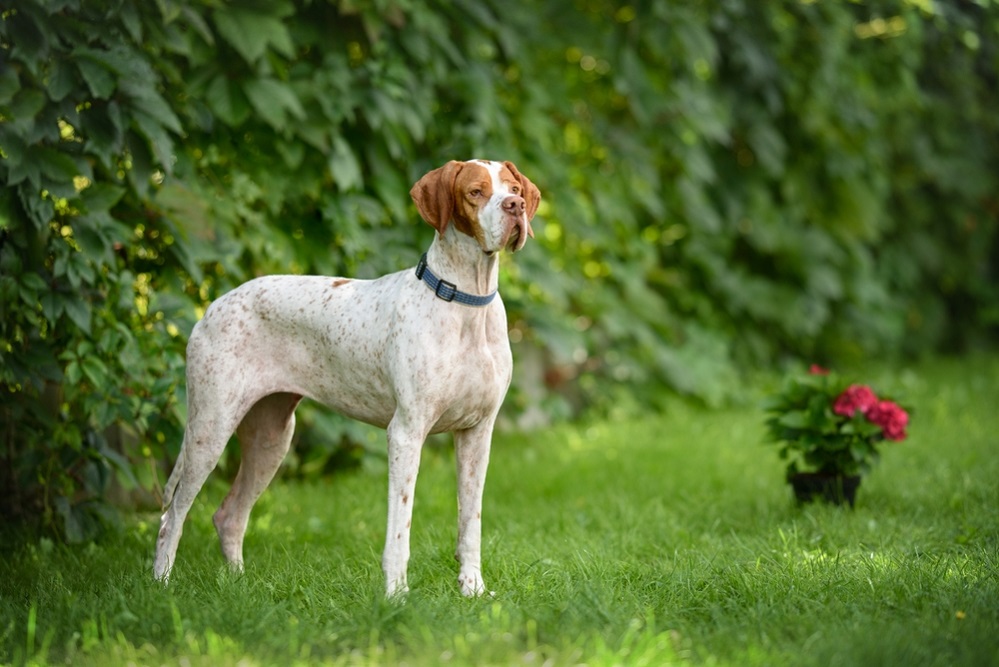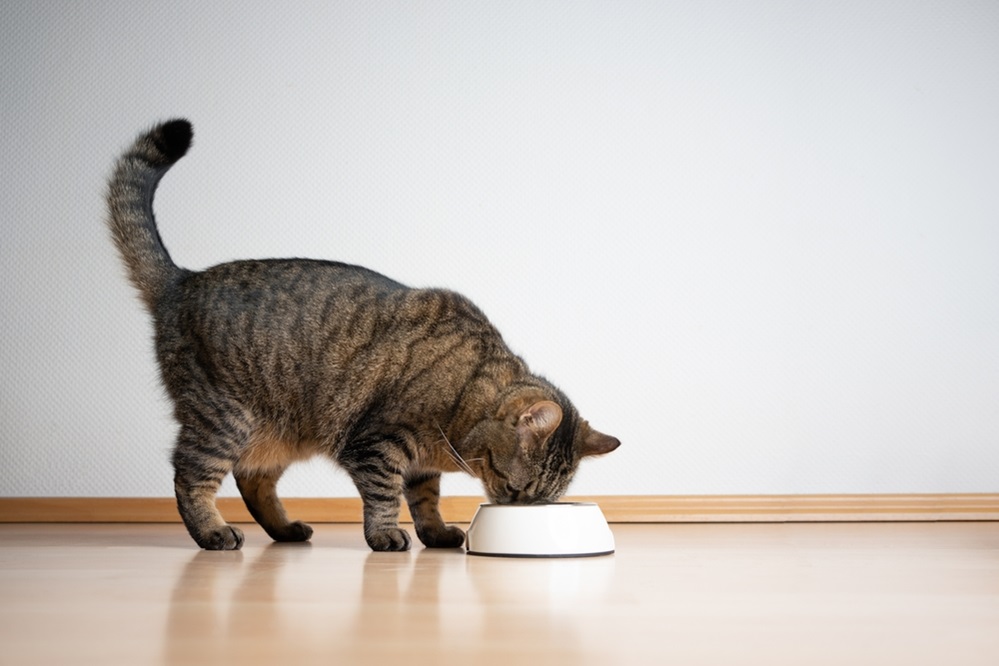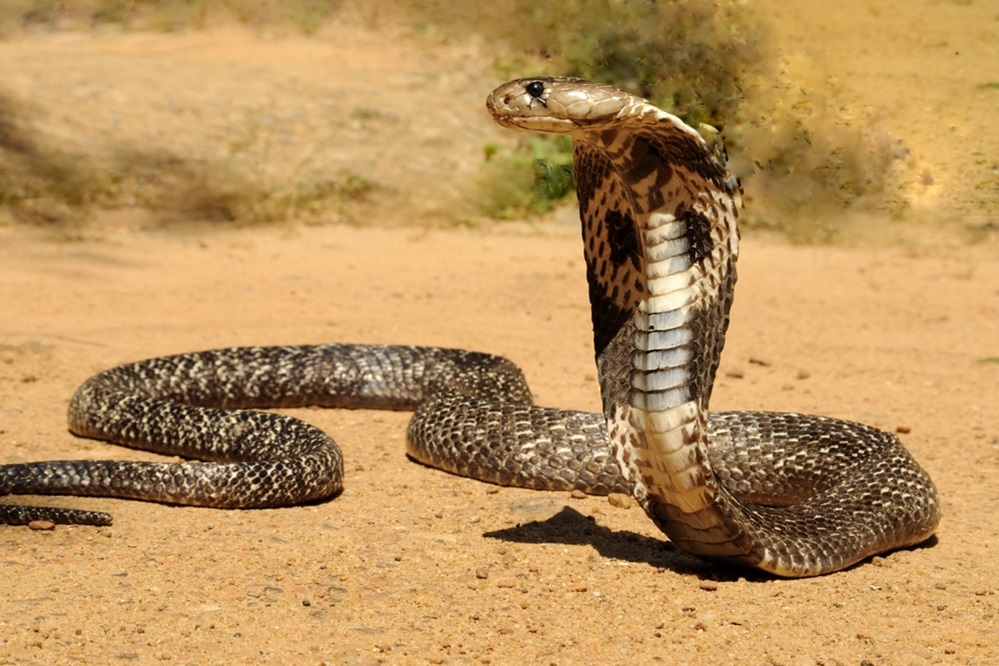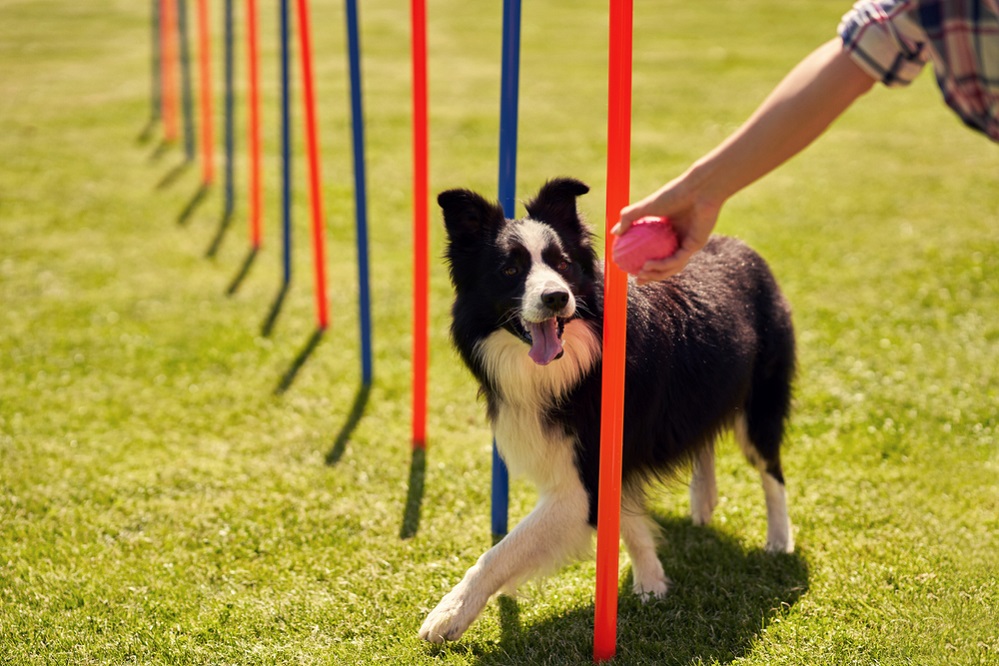Pointer dogs are known for their keen sense of smell and remarkable ability to point towards game birds. They’re athletic, loyal companions, prized for their agility and intelligence in hunting and field activities.
Discover the world of Pointer dogs, where each breed embodies its unique charm and purpose. From the noble English Pointer to the spirited German Shorthaired Pointer, delve into the diverse personalities and capabilities of these versatile canines.
Whether you’re an avid hunter or seeking a devoted family pet, explore the world of Pointer perfection and find the ideal companion to match your lifestyle.

There is a thorough manual diving into the rich assortment of Pointer breeds. From the exquisite English Pointer to the lively German Shorthaired Pointer, find the extraordinary attributes and qualities of each variety. Whether you’re keen on hunting, spryness, or friendship, this book offers significant experiences in finding the ideal Pointer ally for you.
Set out on an excursion through the intriguing universe of Pointer canines and reveal the variety that best accommodates your way of life and inclinations.
Quick Facts About Pointer

Origin: Pointers have a rich history as versatile hunting companions, tracing their roots back to Europe.
Size: These dogs boast a medium-sized stature, characterized by a robust and athletic build.
Appearance: Featuring a sleek coat, typically short and dense, adorned with striking patterns such as liver, lemon, or orange, their graceful physique mirrors their agility and power.
Temperament: Pointers are celebrated for their friendly and affectionate demeanor, coupled with high intelligence and a desire to please. Their spirited nature makes them ideal for active families.
Health: While generally robust, Pointers may face health concerns like hip dysplasia and eye issues, common to many breeds.
Lifespan: Pointers typically enjoy a lifespan of 12 to 15 years, offering ample time for cherished companionship.
Fun Fact: Among the initial eight breeds officially registered in the United States, Pointers hold a distinguished place in canine history.
Comparison: Notably, the English Pointer surpasses the German Shorthaired Pointer in both height and weight.
History of Pointer Dogs
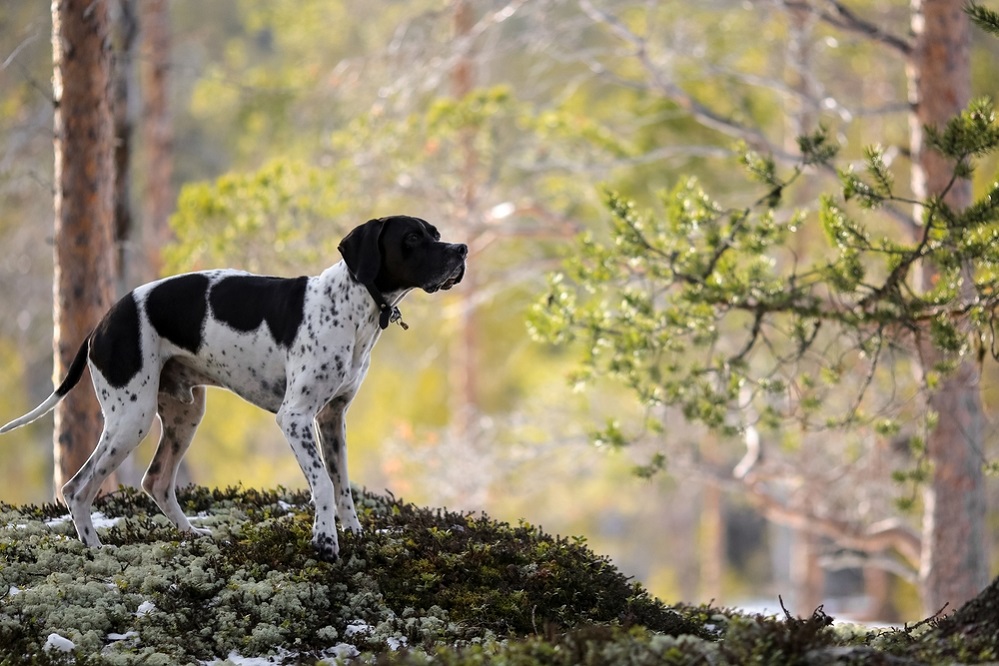
There has been significant debate among dog historians regarding the ancestry of the Pointer breed. The prevailing view suggests that Pointers trace their lineage to Old Spanish Pointers imported into England, likely after the Peace of Utrecht in 1713.
However, alternative theories propose that Portuguese Pointers, Italian Braccos, or French pointers may have contributed to the breed’s foundation. Victorian sportsman William Arkwright, in his 1902 book “The Pointer and His Predecessors,” extensively researched continental archives but found no conclusive evidence supporting Spanish Pointers as the primary stock.
Nonetheless, he concluded that they were the most probable ancestors based on available evidence. It’s worth noting that in earlier times, dog breeds were not as defined as in modern times, and a more generalized pointing type of dog existed across various countries. Another less common theory suggests an indigenous form of Pointer in England predating the Spanish Pointer, influenced later by imported European pointer blood.
The earliest documented references to Pointers in England date back to the early 18th century. John Gay mentioned Pointers being utilized for partridge hunting in his 1713 poem “Rural Sports,” while a painting by Peter Tillemans from 1725 depicts the Duke of Kingston-upon-Hull’s kennel of pointers.
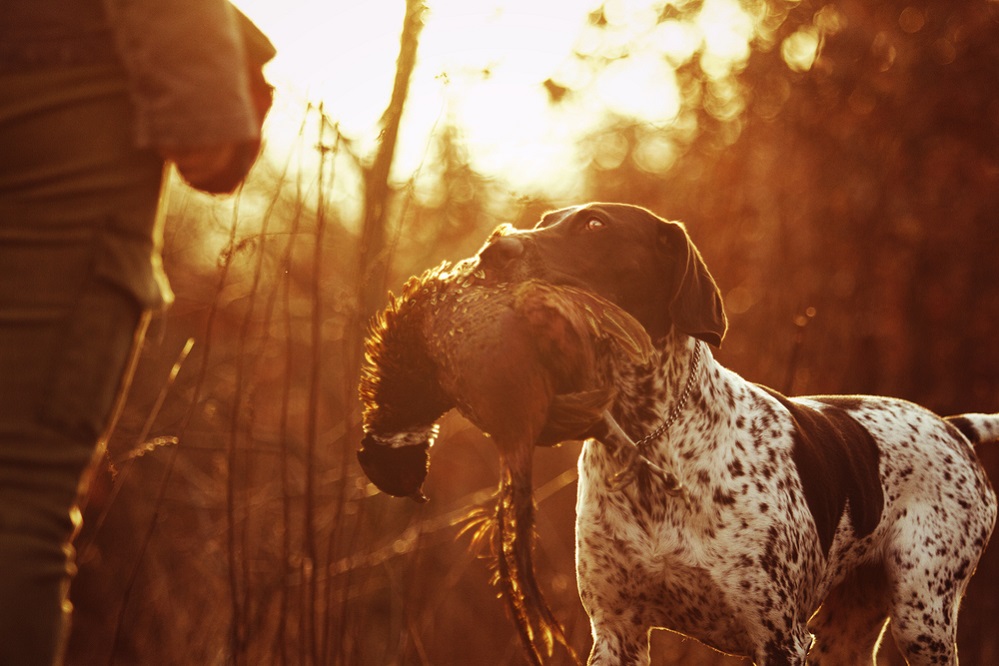
Historical records suggest that early English Pointers were bred with other breeds such as setters, bloodhounds, foxhounds, Bull Terriers, and bulldogs to enhance specific characteristics. Initially, Pointers were heavier and more solidly built, capable of maintaining a steady point while hunters prepared to shoot.
However, advancements in firearms during the 18th and 19th centuries led to a preference for faster and more agile dogs. Greyhounds were subsequently introduced to impart speed, resulting in a refined Pointer breed with a sleeker physique, tighter lips, and a lower-set tail, reminiscent of Greyhounds. The breed standard for Pointers was officially adopted in 1936 and has since undergone minimal alterations.
Pointer Highlights
Active and Energetic: Pointers boast high energy levels, necessitating ample daily exercise for their well-being.
Family-Friendly: They excel as family companions, thriving on quality time spent with their human loved ones.
Outdoor Lifestyle: Apartment living isn’t suitable for Pointers; they flourish in homes with spacious fenced yards where they can unleash their vitality.
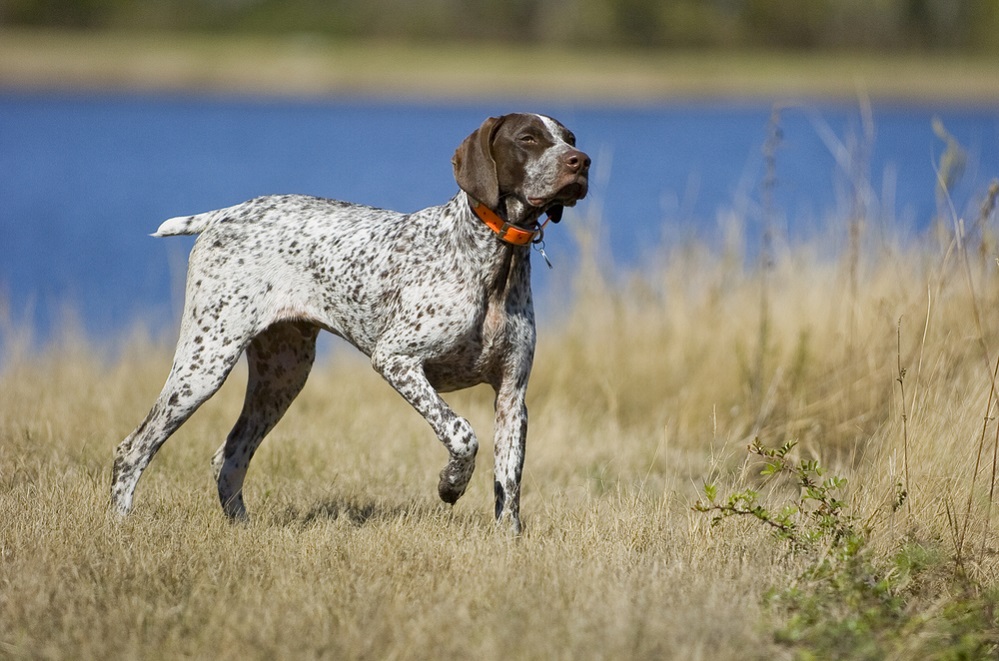
Good with Children: Pointers typically interact well with children, particularly if introduced to them early on, though supervision is advisable around younger kids due to their lively demeanor.
Strong-Willed and Energetic: Due to their independent nature, Pointers require patient training and are better suited for experienced owners capable of meeting their mental and physical stimulation needs.
Minimal Grooming: With moderate shedding and low maintenance requirements, Pointers make grooming a breeze for owners.
Appearance of Pointer Dog Breeds
Size: Medium-sized, typically standing between 53 and 71 cm (21 and 28 in), with males usually taller than females.
Weight: Generally ranges from 20 to 34 kilograms (45 to 75 pounds), with males heavier than females.
Coat: Short, fine, hard, smooth, and evenly distributed, usually bi-colored with lemon, orange, black, or liver patches; rare tri-colored or self-colored varieties.
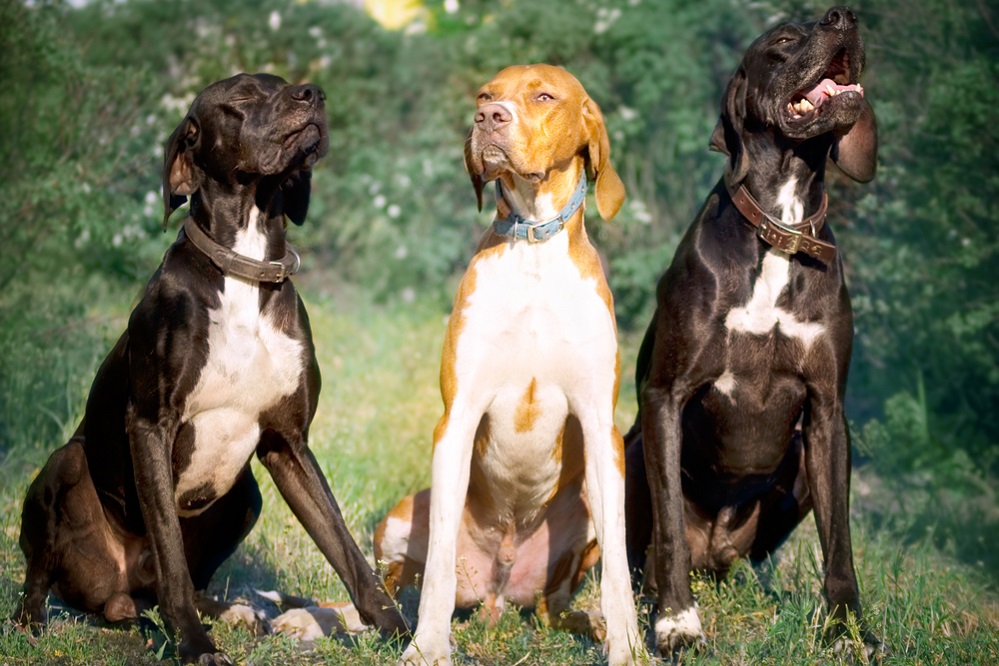
Head: Slightly dished face, elevated nose, high-set, medium-sized, slightly pointed ears.
Neck: Long, muscular, slightly arched neck.
Shoulders: Long, sloping shoulders, well laid back.
Body: Wide chest, straight forelegs, sturdy bone structure, muscular hindquarters.
Tail: Medium length, thick at the root, usually carried erect.
Distinctiveness: With advancements in firearms, the modern Pointer is finer than depictions from the 19th century.
Suitability: Discrepancies exist between show and field lines, with show-bred Pointers emphasizing certain features while field-bred Pointers focus more on practical traits.
Pointer Personality
The Pointer is a friendly and devoted companion, known for his cheerful temperament and independent streak. With a hint of mischief, he’s both fun-loving and protective of his home, making him an excellent watchdog. In the field, he’s fearless and determined, showcasing his competitive spirit. Early socialization is key for Pointers to grow into well-rounded dogs.
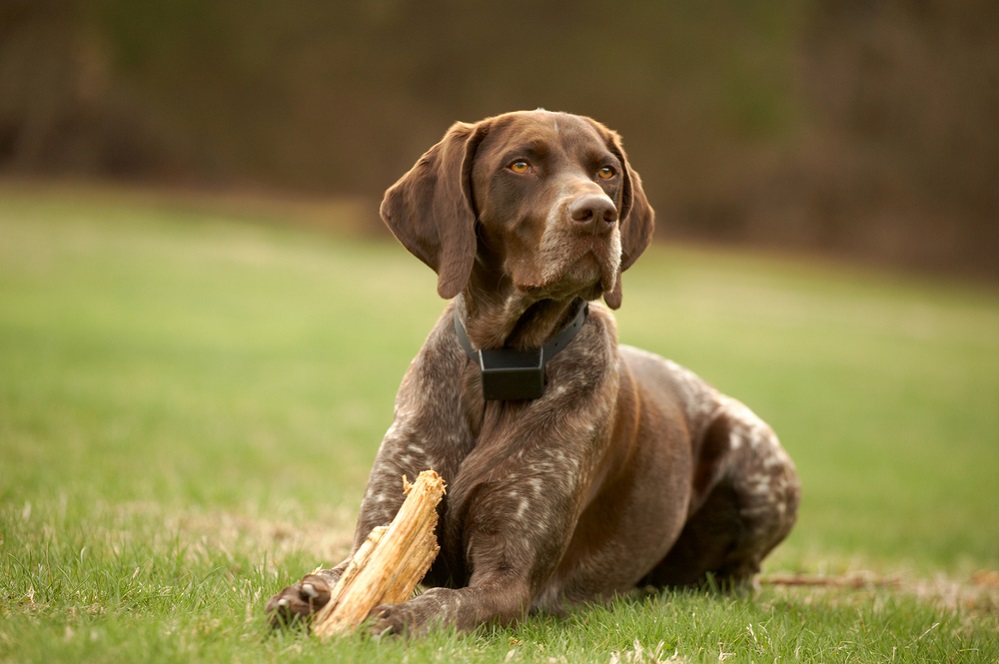
They thrive on positive reinforcement training methods, as harsh treatment can make them stubborn. Regular exercise, both physical and mental, is essential to keep them happy and prevent destructive behaviors.
Pointers require one to two hours of daily exercise and mental stimulation. Crate training can aid in housebreaking and preventing boredom-induced mischief. A tired Pointer is a content one, happy to relax beside you on the couch, as he believes his place is right by your side.
Characteristics
Certainly! Here are the characteristics of pointer dogs:
- Adaptable, obedient, and even-tempered breed.
- Field lines can be extremely active.
- Pointers are more aloof and reserved compared to other gundog breeds.
- They have a lower need for human companionship.
- This demeanor may reflect their greyhound ancestry.
- Their balanced temperament makes them versatile companions.
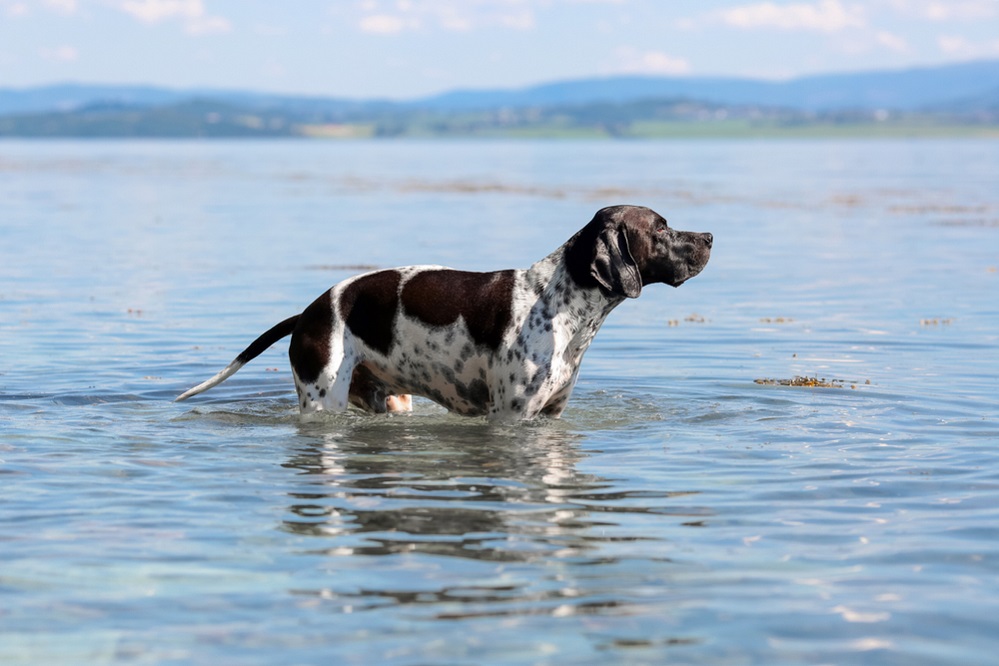
- Exceptional activity levels in field lines highlight their athleticism.
- Independent nature sets them apart from other gundog breeds.
- A moderate need for social interaction distinguishes them as companion animals.
- Ancestral influences contribute to their unique traits and behaviors.
Caring for Your Pointer
Caring for your Pointers involves several essential aspects to ensure their well-being and happiness. Firstly, regular exercise is crucial to keep them physically and mentally stimulated. Pointers are energetic breeds that require daily walks, runs, or play sessions to expend their energy.
Additionally, providing a balanced diet tailored to their nutritional needs is essential for their overall health and vitality. Grooming your Pointer’s short coat is another important aspect of care. Regular brushing helps to remove loose hair, dirt, and debris, keeping their coat clean and healthy.
Socialization is key, especially during their puppyhood, to help them develop positive relationships with people and other animals. Training should be consistent and positive, using rewards and praise to reinforce good behavior and manners.
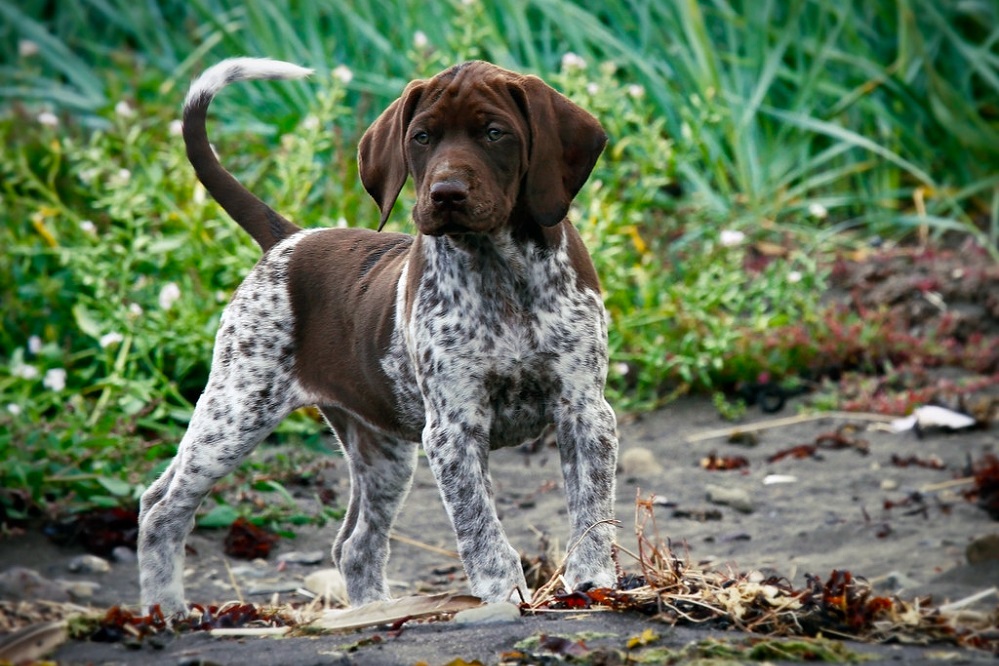
Normal veterinary check-ups are vital for screening their wellbeing and addressing any issues speedily. Preventive measures such as vaccinations, flea and tick prevention, and dental care should also be prioritized. Providing a safe and secure environment, especially if they have a tendency to roam or chase prey, is crucial to prevent accidents or injuries.
Mental stimulation is equally important for Pointers, as they are intelligent breeds that thrive on mental challenges. Giving intelligent toys, puzzle games, and instructional courses can assist with keeping their psyches drawn in and forestall weariness-related ways of behaving.
Lastly, offering plenty of love, attention, and companionship is vital for your Pointer’s well-being. They are affectionate dogs that form strong bonds with their families, so spending quality time together is essential for their happiness and emotional health. With proper care, your Pointer can thrive and bring joy to your life for years to come.
Nutrition
Proper nutrition is essential for keeping your Pointer healthy and happy. Choose a high-quality dog food that meets their specific dietary requirements, considering factors like age, activity level, and any health concerns.
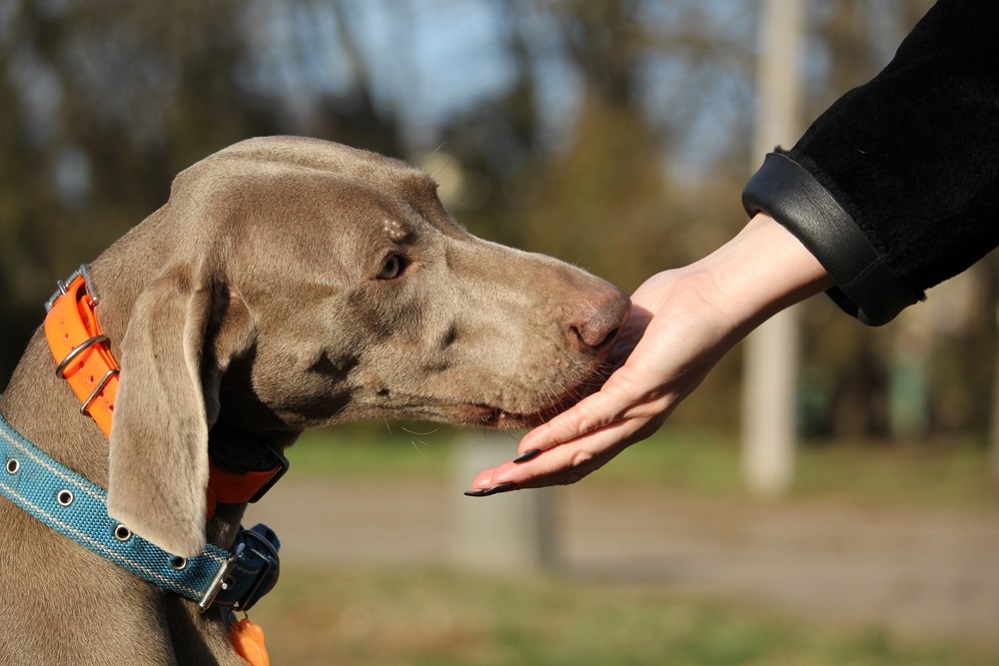
Avoid overfeeding to prevent obesity, and always provide fresh water. Regularly consult with your veterinarian to ensure your Pointer’s diet is meeting their needs and to address any nutritional concerns.
- Adjust portion sizes based on size, age, metabolism, and activity level.
- Choose premium dog food to ensure adequate nutrition and fewer fillers.
- Opt for formulations suited for active breeds to support their energy needs.
- Ensure a balanced diet with protein, carbohydrates, fats, vitamins, and minerals.
- Measure food portions to prevent obesity and related health problems.
- Always provide fresh water to keep them hydrated throughout the day.
- Seek guidance from a veterinarian for personalized dietary recommendations.
- Limit treats and snacks to avoid excessive calorie intake and maintain a healthy weight.
- Monitor their health for any signs of allergies, digestive issues, or weight changes, and adjust their diet accordingly.
Exercise
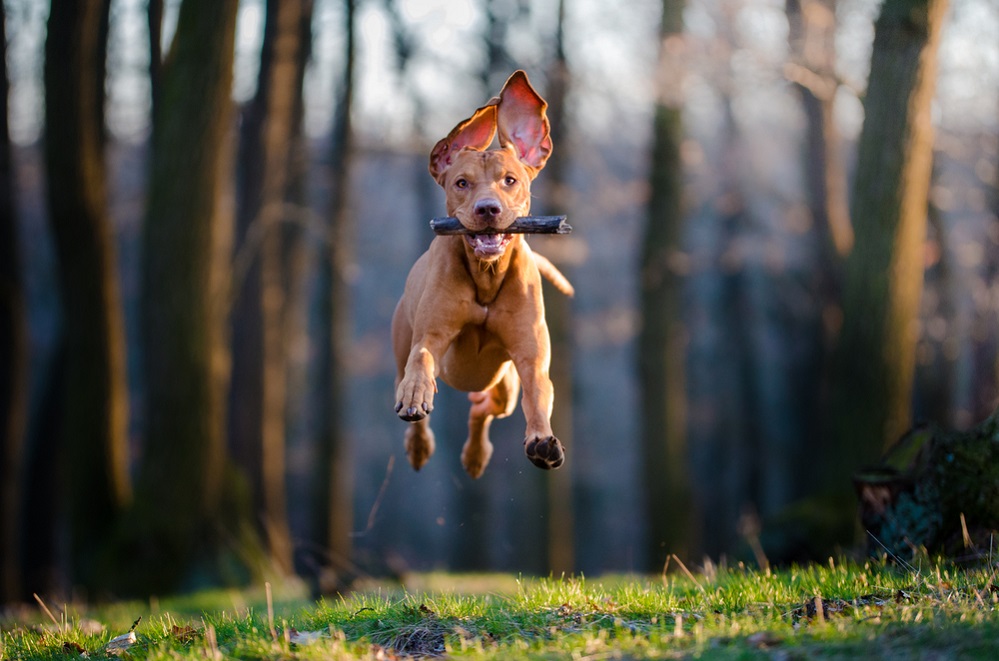
- Pointers thrive on daily exercise to maintain their physical and mental health.
- Aim for at least one hour of vigorous activity each day to satisfy their high energy levels.
- Activities like brisk walks, jogs, or runs are ideal to keep them engaged.
- Engage them in games like fetch or agility training to stimulate their minds.
- Ensure they have access to a secure outdoor space where they can roam and explore.
- Supervised off-leash time in a safe area can allow them to run and stretch their muscles.
- Incorporate mentally stimulating activities such as puzzle toys or scent games to keep them entertained.
- Regular exercise helps prevent obesity and promotes cardiovascular health in Pointers.
- Adjust exercise intensity based on age, health status, and weather conditions to avoid overexertion.
- Always monitor your Pointer during exercise to ensure they remain safe and hydrated.
Training Tips for Pointer Dogs
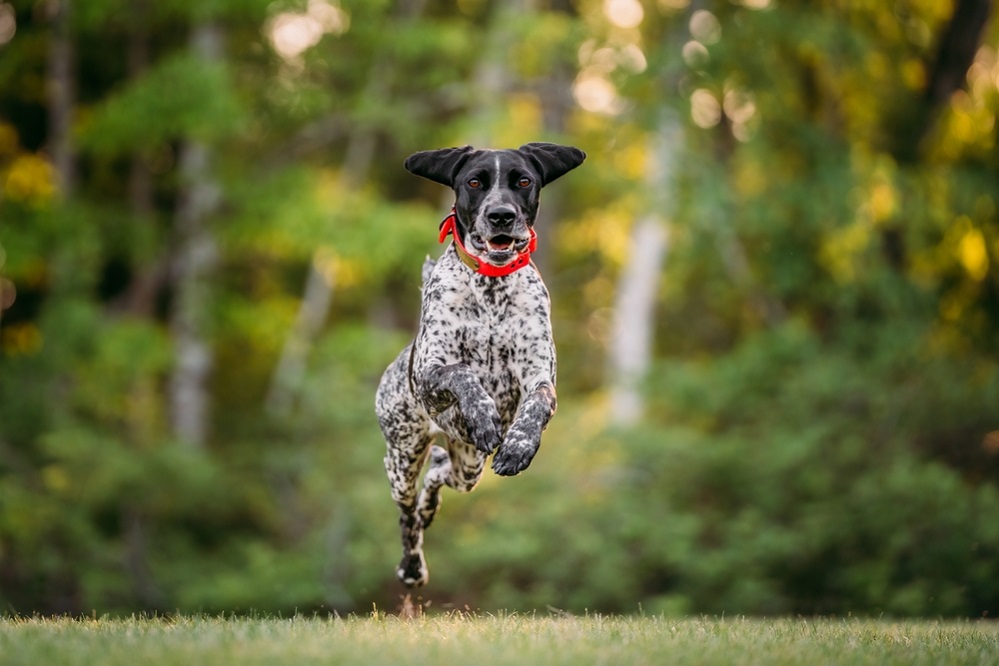
Training your Pointer requires patience, consistency, and positive reinforcement. Begin training early to instill good behaviors and establish a strong bond. Use rewards like treats and praise to motivate them during sessions, keeping training sessions short and engaging to maintain their attention.
Building skills is important to make sure that they feel at ease, in the company of both humans and other animals. Practice basic obedience commands such as sit, stay, and come, gradually progressing to more advanced skills.
Be gentle yet firm in correction, avoiding harsh punishment. Seek professional assistance if needed, and most importantly, foster a loving and trusting relationship with your Pointer through ongoing training and positive interactions.
Pointer Dogs Health
Pointers are generally healthy, but like all breeds, they are susceptible to certain health conditions. Here are some common health issues to be aware of if you’re considering this breed:
Hip Dysplasia: A heritable condition where the thighbone doesn’t fit snugly into the hip joint, leading to pain and lameness.
Progressive Retinal Atrophy (PRA): A family of eye diseases causing gradual deterioration of the retina, resulting in vision loss.
Epilepsy: A disorder causing mild or severe seizures, which can be controlled with medication but not cured.
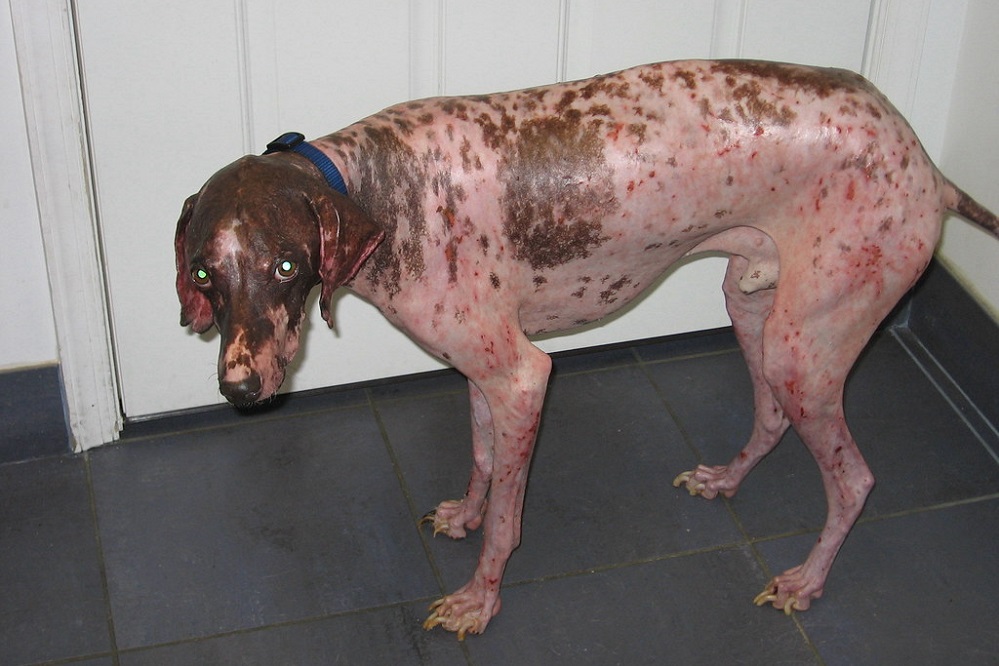
Neurotropic Osteopathy: A rare bone disease occurring between 3 to 9 months, leading to spinal degeneration.
Allergies: Commonly affecting dogs, including food-based, contact, and inhalant allergies, requiring various treatments.
Cherry Eye: This occurs when the gland in the dog’s third eyelid bulges out and may require surgical correction.
Entropion: A defect where the lower eyelid folds inward, causing chronic irritation and often corrected surgically.
Cataracts: Opacity on the lens of the eye causing vision difficulties, sometimes surgically removable.
Chondrodysplasia: A genetic disorder leading to abnormally short limbs, ranging from mild to severe crippling.
Addison’s Disease: Insufficient production of adrenal hormones by the adrenal gland, causing vomiting, poor appetite, and lethargy. It’s essential to obtain health clearances from reputable breeders and provide proper veterinary care to ensure a healthy life for your Pointer.
Popularity and Use in Field Sports
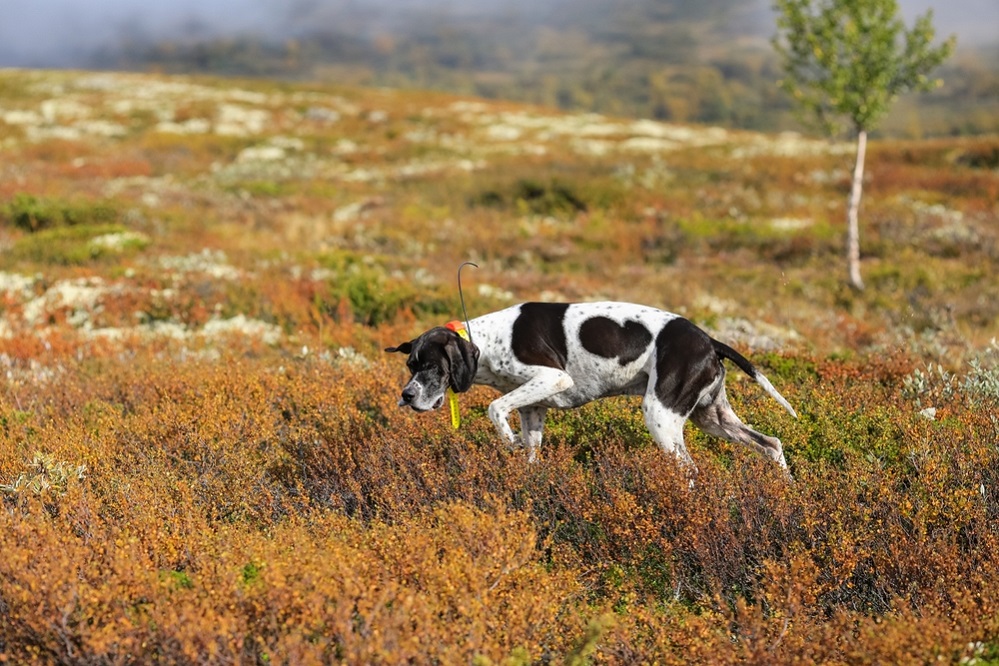
During hunting, the Pointer adeptly quarters in front of the hunter, with its head held high to catch scents carried by the wind. Upon detecting the hidden game, it halts suddenly, nose pointed towards the prey, signaling the hunter to prepare for a shot. The hunter commands the Pointer to flush out the game when ready.
Regarded as the quintessential pointing breed, the Pointer is esteemed for its keen sense of smell, graceful movements, and impressive pointing stance. It holds the title of the most popular pointing dog breed utilized by sporting estates in the UK and commercial shooting preserves in the US. Moreover, it dominates pointing dog trials in both countries.
In comparison to European pointing breeds, the classically trained Pointer is primarily used for pointing and flushing games, with specialized retrievers employed for retrieving shot games. European breeds, often labeled as “hunt-point-retrievers” or “versatile gundogs,” are trained to both point and retrieve game. The Pointer is known for its speed and extensive search range while working.
Furthermore, the Pointer is valued by falconers and austringers in falconry for its ability to locate game to be flushed for the falcon or hawk to dispatch.
Pointer Feeding
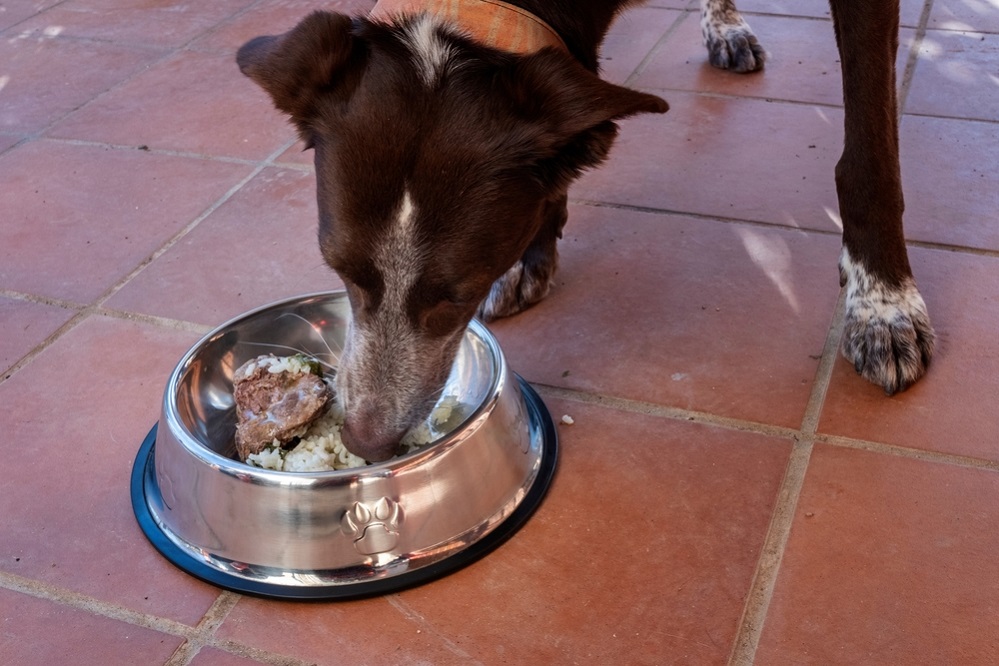
Suggested Everyday Sum:
2 to 3 cups of top-notch dry food daily. How much your grown-up canine eats relies upon his size, age, construct, digestion, and movement level. Canines are people, very much like individuals, and they don’t all need a similar measure of food. It nearly should be obvious that a profoundly dynamic canine will require more than a habitually lazy person canine.
Moreover, utilize our Dog Calorie Calculator to accurately determine the daily calorie needs for your canine companion.
The nature of canine food you purchase likewise has an effect — the better the canine food, the further it will go toward sustaining your canine, and the less of it you’ll have to shake into your canine’s bowl.
Keep your Pointer’s build smooth by estimating his food and taking care of him two times per day as opposed to leaving food out constantly. Giving him a lot of day-to-day exercise ought to wrap up. If you’re uncertain whether he’s overweight, give him the active test.
Put your hands on his back, thumbs along the spine, and the fingers spread descending. You ought to have the option to feel yet not see his ribs. If you can’t feel the ribs, he wants somewhat less food and significantly more activity. For more on taking care of your Pointer, see our rules for purchasing the right food, taking care of your little dog, and taking care of your grown-up canine.
Pointer Coat, Color, And Grooming
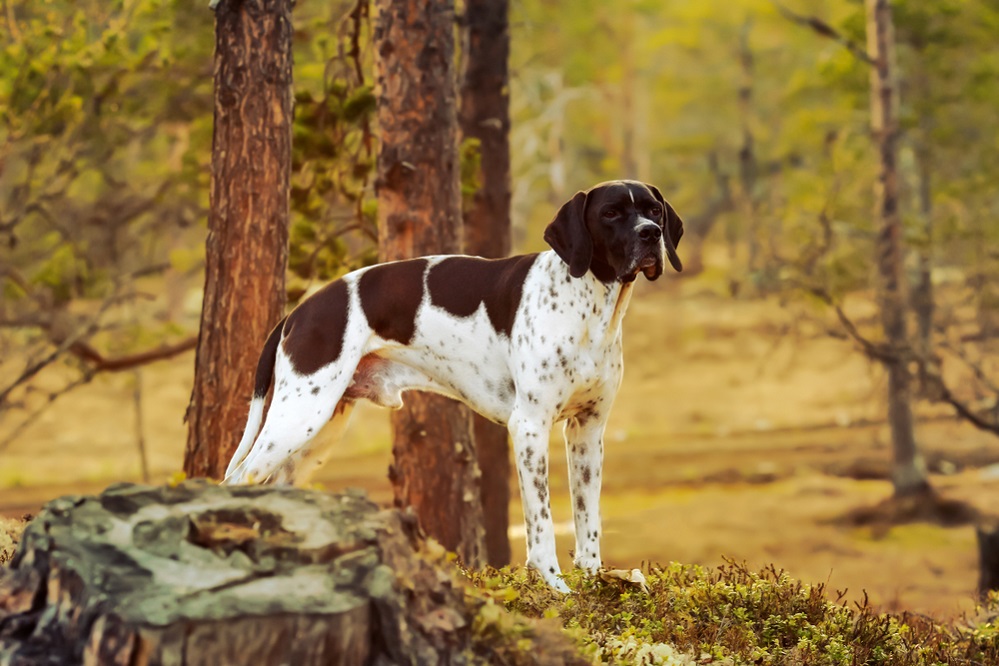
An old hunter’s saying is that a good Pointer can’t be a bad color. Pointers come in liver (dark brown), black, orange, or lemon, often with white backgrounds. Some may have speckles, called ticking, on the white areas.
Tricolor Pointers exist but are rare. Dark-colored Pointers have black or brown noses, while light-colored ones have light or flesh-colored noses. Their short, smooth coat requires weekly brushing with a hound mitt to keep shedding minimal. Occasional baths with dog shampoo are needed to maintain cleanliness and skin health.
Regular grooming from puppyhood helps acclimate Pointers to handling, making veterinary exams easier as adults. During grooming sessions, check for any sores, rashes, or signs of infection.
Clean ears with a damp cotton ball, avoiding the ear canal. Brush their teeth a few times a week to prevent tartar buildup and gum disease. Keep their nails trimmed to prevent scratches and injuries, especially during their frequent runs and jumps. Regular grooming ensures your Pointer stays healthy and comfortable.
FAQs
What is the history of Pointer dogs?
Pointer dogs originated as versatile hunting dogs, with their ancestry dating back
to Europe.
What are the common characteristics of Pointer dogs?
Pointer dogs are known for their athleticism, friendly temperament, and
intelligence.
How much exercise do Pointer dogs need?
Pointer dogs require plenty of daily exercise to stay happy and healthy, typically
one to two hours of activity.
Are Pointer dogs suitable for families?
Yes, Pointer dogs make excellent family pets, known for their affectionate nature
and compatibility with active lifestyles.
What are the grooming needs of Pointer dogs?
Pointer dogs have short, smooth coats that require weekly brushing and
occasional baths to maintain cleanliness and shine.
Conclusion
Pointer dogs embody a rich history of hunting and companionship, tracing their lineage back to Europe. Their athleticism, friendly demeanor, and intelligence make them cherished members of many families. With their striking coats and versatile abilities, Pointers exemplify the perfect balance between beauty and utility in the canine world.
In caring for Pointer dogs, it’s essential to provide them with plenty of exercise and mental stimulation to keep them happy and healthy. Their short, smooth coats require minimal grooming but regular attention to maintain their sleek appearance.
With proper training and socialization, Pointer dogs can thrive in various environments, making them well-suited companions for active individuals and families alike. Pointer dogs represent the epitome of canine excellence, combining grace, intelligence, and loyalty in one remarkable breed.
Whether in the field or at home, their unwavering companionship and boundless energy bring joy to those fortunate enough to share their lives. For those considering adding a Pointer to their family, embracing their unique qualities promises a rewarding and fulfilling journey filled with adventure and love.

